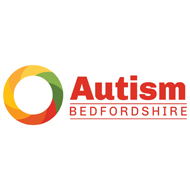“Dear Laurie. Absolutely fantastic day of learning. Highlighted just how ill informed most of us are regarding autism. Thank you!” – delegate
I really am incredibly proud of the work I do. I hadn’t done a 6 hour workshop until I was commissioned to do five for a client so I had a challenge. How to stretch 4 hours into 6. The result was role play and it’s genius, if I do say so myself. The delegates have to create case studies and guess what? They choose a client who is presenting a challenge and the solutions they have tried.
The role
My role is to take on the perspective of this person so I could be male or female and any age; I may have a learning disability and also be non verbal. I could be in supported living or at home with parent(s). When all the groups are ready- it was 6 yesterday- I sit on a chair in the middle of the room and hear the case. I then add an autistic perspective and other groups can add their input. Yesterday, something incredible happened. People had contact with groups and organisations that could help, ie bereavement counselling for people with learning disabilities. I suggested these people swap contact details to discuss it outside the room. What a result!
One of the cases we looked at was a hybrid character, who, for the purposes of the exercise, was an autistic man in his mid 20s with a learning disability. He had been in supported living for ten years, which took some getting used to but he settled down. Three years ago, his mum died and since that time, this man’s mental health had deteriorated. He had begun self harming and the only word he would say was “die”. Once, he even lay down in the middle of the road.
Of course, this was concerning. From my chair, I began asking questions. Had this man been to the funeral? No. It was decide he wouldn’t understand what was going on. Neither had he been to visit his mum’s grave. Had he been given any bereavement counselling? No.
I pointed out he may not have had closure and was saying “die” because he wanted to make sense of what had happened.
Sharing knowledge
This is when something truly wonderful happened. One person in the room said they had a similar case with a young woman. She found closure when she was taken to put flowers on her mum’s grave and spend time cleaning it. Another person said they had a phone number for a voluntary group that specialised in bereavement counselling for people with learning disabilities. I suggested they swap contact details.
This is the power of delivering training that really is different by default. It allows space to present an autistic perspective. There is strength in having people on the team with different skills and knowledge. It shows how valuable diversity is.










Matthew F Tinsley
Sounds like you’re doing great things (unsurprisingly)! I’m using my personal experience to help people get the Blue Badges and disabled bus passes they need in Brighton. We can all help in different ways.
Laurie Morgen
Thank you, Matt. I try. The delegates find the role play quite traumatic, which is the result I’m looking for. It gives them some kind of idea what overload feels like for autistic people. I stress this is a common experience for all autistic ability levels. I also challenge functioning labels. It’s really important to do this because I read a lot from people going through, or trying to, the diagnostic process and are dismissed because they can talk, make eye contact, are married, have kids, etc. so much to do. So many myths to bust. If it changes the perception of one professional, the spin off for better recognition for many others like us will be massive.